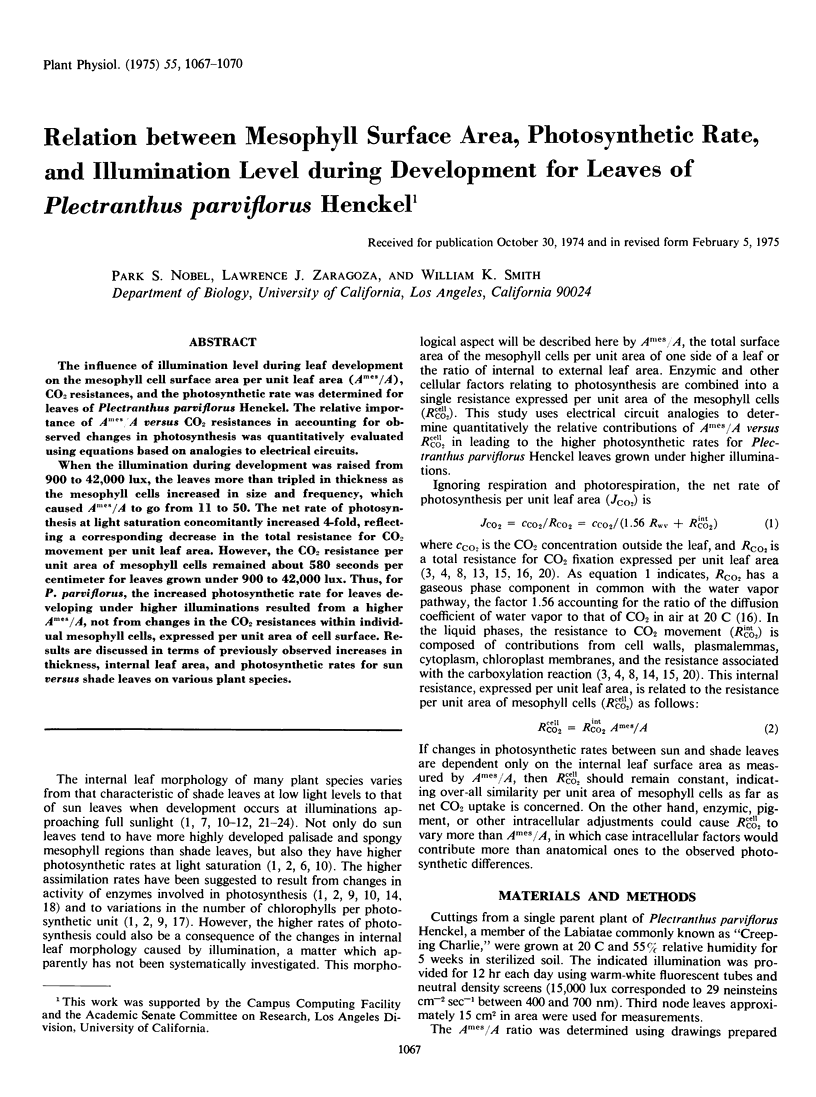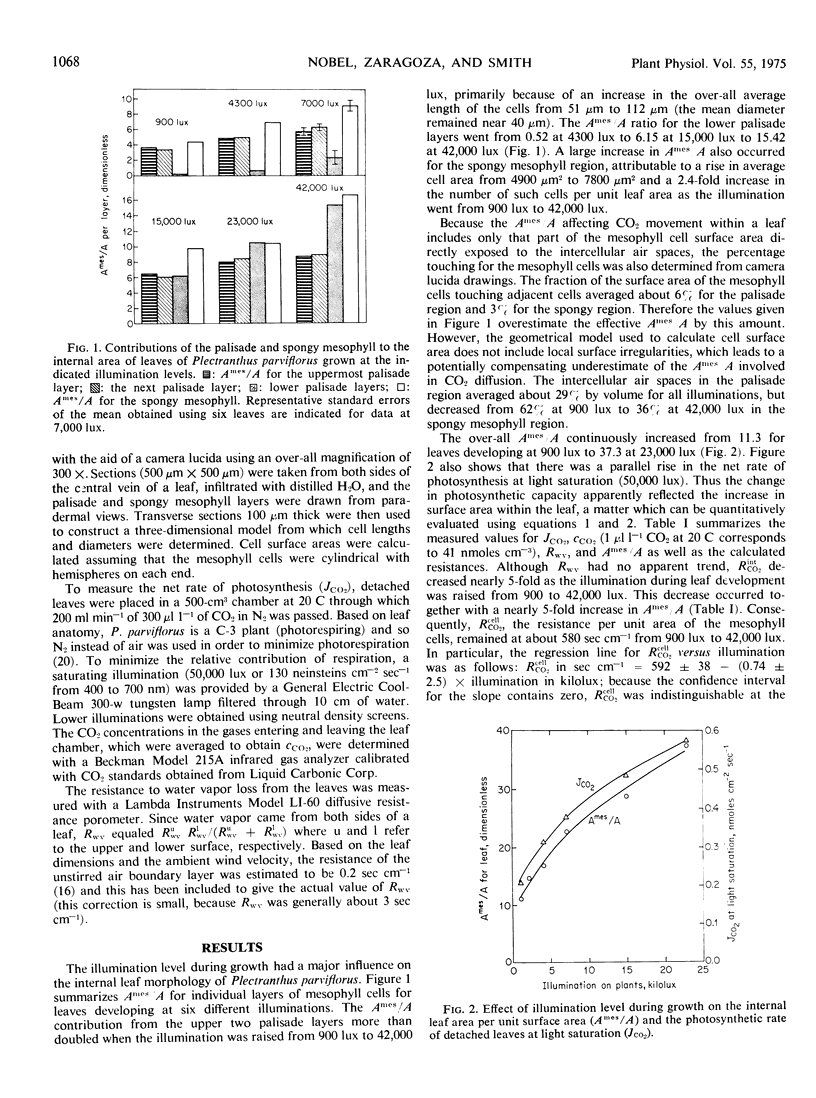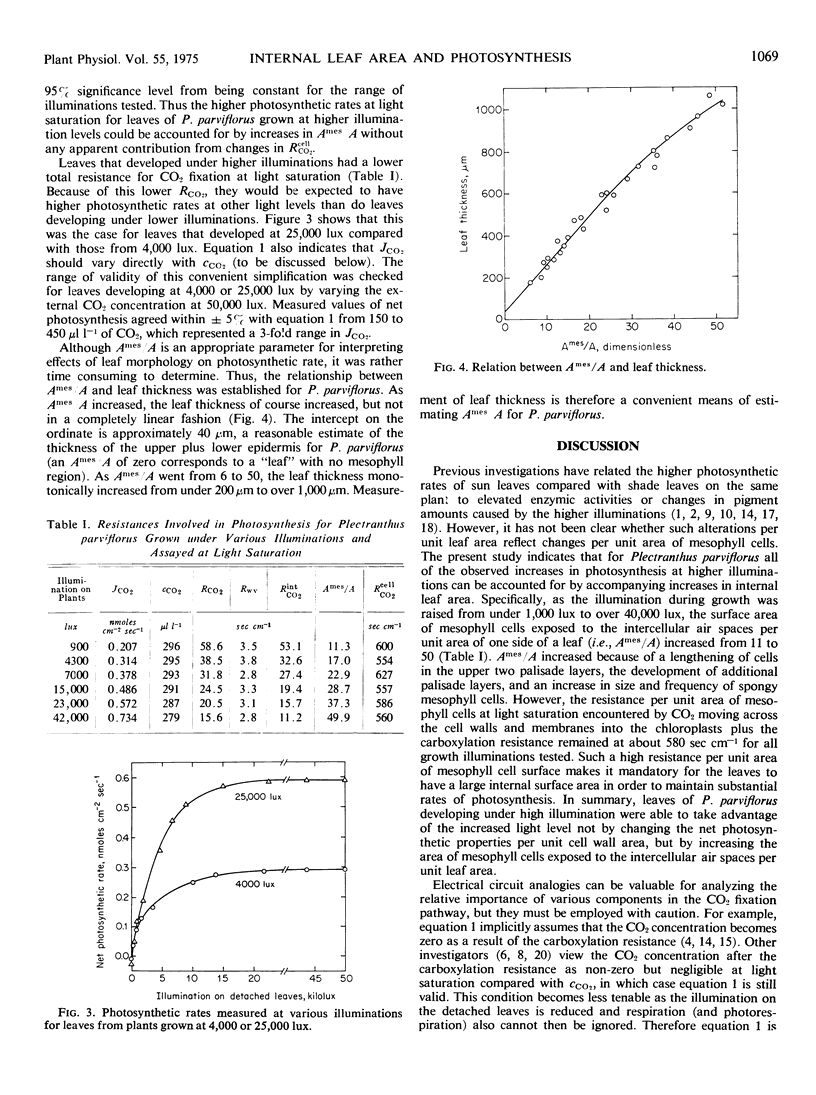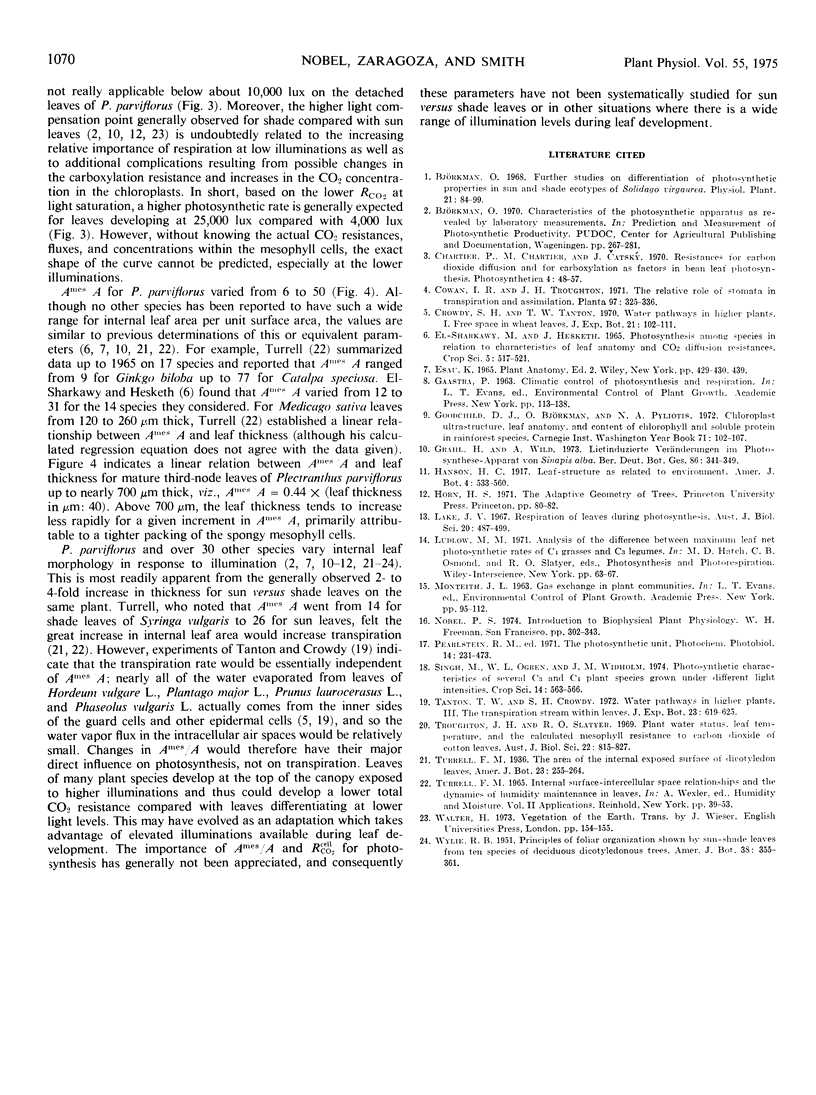Abstract
The influence of illumination level during leaf development on the mesophyll cell surface area per unit leaf area (Ames/A), CO2 resistances, and the photosynthetic rate was determined for leaves of Plectranthus parviflorus Henckel. The relative importance of Ames/A versus CO2 resistances in accounting for observed changes in photosynthesis was quantitatively evaluated using equations based on analogies to electrical circuits.
When the illumination during development was raised from 900 to 42,000 lux, the leaves more than tripled in thickness as the mesophyll cells increased in size and frequency, which caused Ames/A to go from 11 to 50. The net rate of photosynthesis at light saturation concomitantly increased 4-fold, reflecting a corresponding decrease in the total resistance for CO2 movement per unit leaf area. However, the CO2 resistance per unit area of mesophyll cells remained about 580 seconds per centimeter for leaves grown under 900 to 42,000 lux. Thus, for P. parviflorus, the increased photosynthetic rate for leaves developing under higher illuminations resulted from a higher Ames/A, not from changes in the CO2 resistances within individual mesophyll cells, expressed per unit area of cell surface. Results are discussed in terms of previously observed increases in thickness, internal leaf area, and photosynthetic rates for sun versus shade leaves on various plant species.
Full text
PDF



Selected References
These references are in PubMed. This may not be the complete list of references from this article.
- Lake J. V. Respiration of leaves during photosynthesis. II. Effects on the estimation of mesophyll resistance. Aust J Biol Sci. 1967 Jun;20(3):495–499. doi: 10.1071/bi9670495. [DOI] [PubMed] [Google Scholar]


